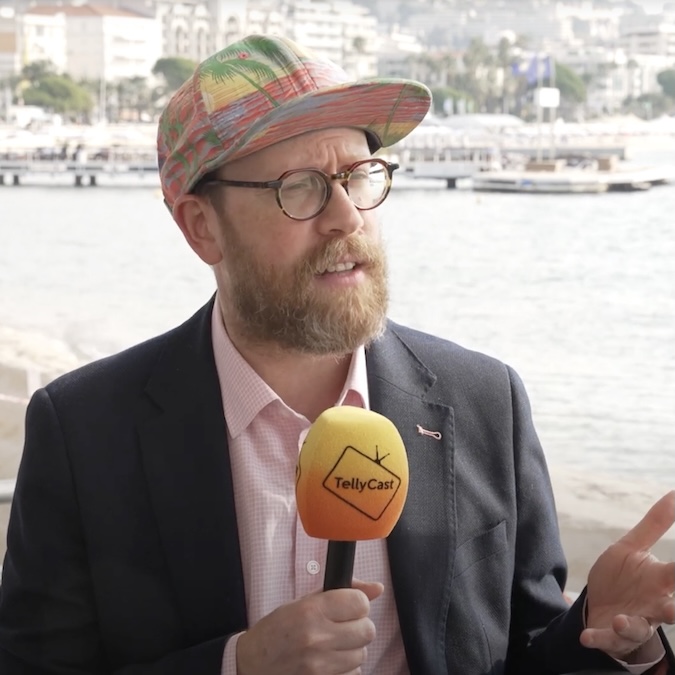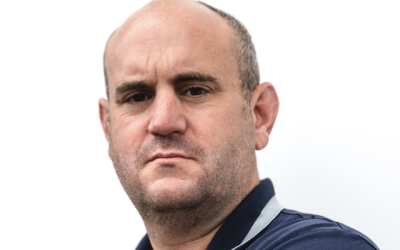If proof were ever needed that the creator economy has arrived on the global media stage, it could be found this week on the beach in Cannes. Among the yacht parties and back-to-back meetings of MIPCOM, Viral Nation’s Paul Telner sat down to talk about how the creator world is no longer a sideshow — it’s the main event.
Viral Nation, founded in Canada more than a decade ago, has grown into one of the world’s leading creator management and social-first entertainment companies. Its talent roster spans gaming, comedy and music, while its business units now include tech, brands and original content. “We live and breathe social,” Telner said. “Everything we do is about creators and how they can extend their IP across multiple screens.”
That focus was underlined in Cannes by Viral Nation’s new partnership with Fremantle, a deal to develop and produce original series rooted in creator talent. “It’s such a long time coming,” Telner explained. “Creators were once like the kids at the school dance standing in the corner. Now they’re in the centre of the floor.”
The collaboration represents a symbolic shift for both sides. Fremantle, best known for franchises such as Got Talent and Idol, gains a route into the attention economy; Viral Nation gains access to decades of production expertise and global distribution muscle. “It’s about working together in fair and modern ways,” said Telner. “Creators don’t need Hollywood to survive anymore, but there’s huge potential when both worlds collaborate on equal terms.”
For Telner, that sense of equality has been a long time coming. A veteran of early YouTube, he launched his own channel back in 2005 — “which might as well have been 1965,” he joked — when homemade videos were still treated as amateur curiosities. “Back then, people saw online creators as the black sheep. Now, when you have 20 million subscribers, you are a studio.”
Today’s creator economy, he believes, is entering a period of maturity. “Every major studio started at zero,” he said. “So did every creator. They’ve built audiences, businesses and brands from the ground up.” The difference now is scale. Creators are not just generating views; they’re commanding audiences that rival broadcasters and streamers.
That growth has attracted brands, who are now weaving creator partnerships into their marketing strategies. But Telner stresses that authenticity remains non-negotiable. “You can’t suddenly endorse something that doesn’t fit your persona — audiences will call you out instantly,” he warned. Comedy and sport, he says, are the two most fertile areas for authentic brand work. “People love to laugh, and they love to hear from fans who talk about sports like they do — not from three people in suits.”
Viral Nation’s work now extends into helping creators navigate those relationships and build long-term IP rather than chasing short-term deals. The goal is to treat creator-led content as a scalable media business rather than a marketing sideline. “Creators are the new celebrities,” Telner said. “They’re more accessible, more relatable and more consistent than mainstream stars because you see them every day.”
Looking ahead, Telner sees a hybrid future where creators and studios work hand in hand. “It’s not about bypassing Hollywood,” he said. “It’s about meeting it halfway.” He argues that successful creators now operate like independent producers — incubating their own ideas, gathering data, proving audiences and then bringing that proof to partners who can elevate it. “You build the track record yourself and come to the table as equals.”
That dynamic is driving what he calls “the second wave of the creator economy” — a move from individual influencer deals to structured, digital-first studios that own their IP, employ teams and monetise across multiple verticals.
As the tide of MIPCOM lapped gently in the background, Telner summed up the change with characteristic clarity: “The creators have arrived. The question now isn’t whether they belong here — it’s how fast the rest of the industry can catch up.”





